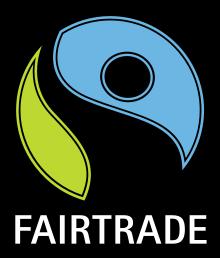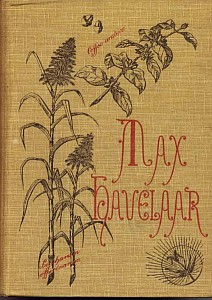
Fair trade is an institutional arrangement designed to help producers in developing countries achieve better trading conditions. Members of the fair trade movement advocate the payment of higher prices to exporters, as well as improved social and environmental standards. The movement focuses in particular on commodities, or products which are typically exported from developing countries to developed countries, but also consumed in domestic markets most notably handicrafts, coffee, cocoa, wine, sugar, fresh fruit, chocolate, flowers and gold. The movement seeks to promote greater equity in international trading partnerships through dialogue, transparency, and respect. It promotes sustainable development by offering better trading conditions to, and securing the rights of, marginalized producers and workers in developing countries. Fair trade is grounded in three core beliefs; first, producers have the power to express unity with consumers. Secondly, the world trade practices that currently exist promote the unequal distribution of wealth between nations. Lastly, buying products from producers in developing countries at a fair price is a more efficient way of promoting sustainable development than traditional charity and aid.

Fairtrade International otherwise known as in many countries Fairtrade Labelling Organizations International e.V. (FLO) was established in 1997, and is an association of 3 Producer Networks, 19 National Fairtrade Organizations and 8 Fairtrade Marketing Organizations that promote and market the Fairtrade Certification Mark in their countries

Eduard Douwes Dekker, better known by his pen name Multatuli, was a Dutch writer best known for his satirical novel Max Havelaar (1860), which denounced the abuses of colonialism in the Dutch East Indies. He is considered one of the Netherlands' greatest authors.

The Fairtrade certification initiative was created to form a new method for economic trade. This method takes an ethical standpoint, and considers the producers first.

The Fairtrade Foundation is a charity based in the United Kingdom that works to empower disadvantaged producers in developing countries by tackling injustice in conventional trade, in particular by promoting and licensing the Fairtrade Mark, a guarantee that products retailed in the UK have been produced in accordance with internationally agreed Fairtrade standards. The Foundation is the British member of FLO International, which unites FLO-CERT, 25 National Fairtrade Organisations and 3 Producer Networks across Europe, Asia, Latin America, North America, Africa, Australia and New Zealand.

The International FAIRTRADE Certification Mark is an independent certification mark used in over 50 countries. It appears on products as an independent guarantee that a product has been produced according to Fairtrade political standards.
Nicolaas Josephus Maria "Nico" Roozen is a Dutch economist who, in collaboration with Frans van der Hoff and ecumenical development agency Solidaridad, launched Max Havelaar, the first Fairtrade certification initiative in 1988. Roozen played a key role in convincing several major Dutch retailers to offer Fairtrade goods, which later led to the commercial success of Fairtrade certification. On October 25, 2007, Nico Roozen was invested as a Officer of the Order of Orange Nassau for his years of dedication to Fairtrade.
Frans van der Hoff, or Francisco VanderHoff Boersma as he is called in Latin America, is a Dutch missionary who, in collaboration with Nico Roozen and ecumenical development agency Solidaridad, launched Max Havelaar, the first Fairtrade label in 1988. Frans van der Hoff's contacts with disadvantaged Mexican coffee producers were key in securing the supply and ensuring the success of the very first Fairtrade certification initiative.

Fairtrade Ireland is the Irish member of FLO International, which unites 23 Fairtrade producer and labelling initiatives across Europe, Asia, Latin America, North America, Africa, Australia and New Zealand.

The Fair Trade Association of Australia and New Zealand is a member-based organization that supports two systems of fair trade. The first is the Australia and New Zealand member of FLO International, which unites Fairtrade producer and labeling initiatives across Europe, Asia, Latin America, North America, Africa, Australia and New Zealand. The second, is the World Fair Trade Organization (WFTO), of over 450 worldwide members, to which the Fair Trade Association is one. Fairtrade refers to FLO certified commodity and associated products. Fair trade encompasses the wider Fair Trade movement, including the Fairtrade commodities and other artisan craft products.
The fair trade movement has undergone several important changes since its early days following World War II. Fair trade, first seen as a form of charity advocated by religious organizations, has radically changed in structure, philosophy and approach. The past fifty years have witnessed massive changes in the diversity of fair trade proponents, the products traded and their distribution networks.

Alphonse Marie "Fons" Rademakers was a Dutch actor, film director, film producer and screenwriter.

The Max Havelaar Foundation is a non-profit certification and public education organization promoting Fairtrade products in Switzerland to improve the livelihood of developing world farmers and workers. The Max Havelaar Foundation is the Swiss member of FLO International, which unites 23 Fairtrade producer and labelling initiatives across Europe, Asia, Latin America, North America, Africa, Australia and New Zealand. Several of these corresponding organizations in other European countries also use the Max Havelaar name. The Swiss Max Havelaar organization was founded in 1992 by the Third World aid organisations Brot für alle, Caritas, Fastenopfer, HEKS, Helvetas and Swissaid.

Fair Trade coffee is coffee that is certified as having been produced to fair trade standards.

A fair trade certification is a product certification within the market-based movement fair trade. The most widely used fair trade certification is FLO International's, the International Fairtrade Certification Mark, used in Europe, Africa, Asia, Australia and New Zealand. Fair Trade Certified Mark is the North American equivalent of the International Fairtrade Certification Mark. As of January 2011, there were over 1000 companies certified to the FLO International's certification and a further 1000 or so certified to other ethical and fairtrade certification schemes around the world.

The Union of Indigenous Communities of the Isthmus Region, is a farmer's cooperative in the state of Oaxaca, Mexico. It was established in 1982 to assist in production, marketing and distribution of locally produced coffee and other products.
UCIRI was a pioneer of organic coffee production and one of the first fair trade suppliers.










